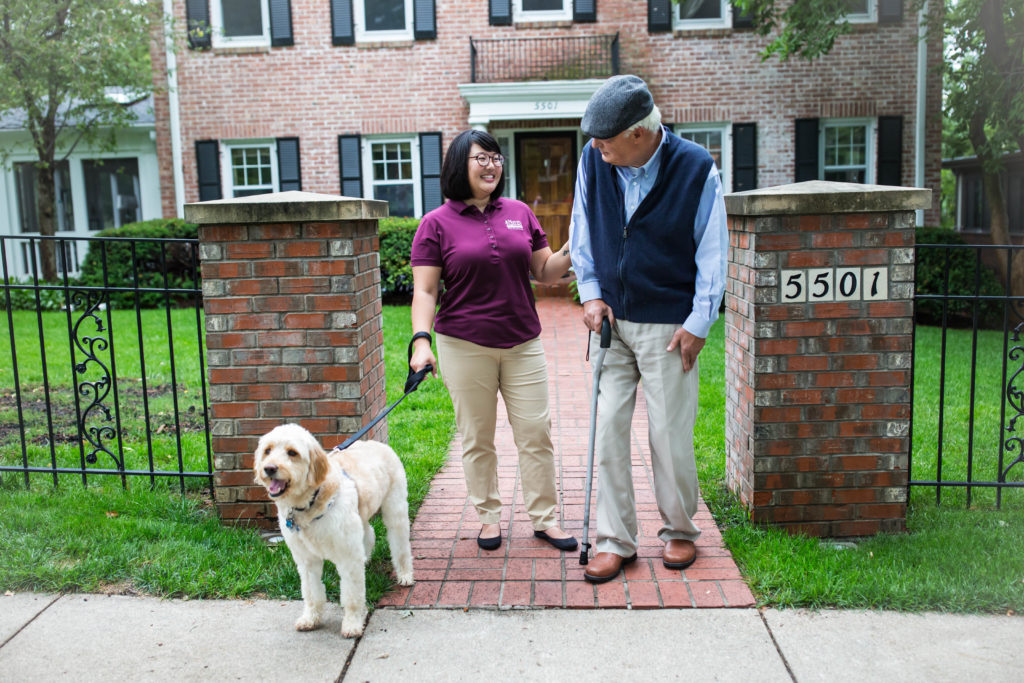Any pet lover already knows the benefits that their furry friend brings to their life, but is there a measurable impact? Research says yes, especially for aging seniors.
The Benefits of Aging with Pets
The University of Michigan conducted a National Poll on Healthy Aging with a focus on how pets can contribute to healthy aging. Adults ages 50-80 were asked about their pets, reason for having them, and the benefits they’ve noticed from owning one.
Of the aging pet owners surveyed, 79% said their pets help them reduce stress, 73% said their pets provide them with a sense of purpose, and 64% said their pet encourages them to be physically active. Let’s explore how those kinds of benefits can translate to your overall health.
Pet Ownership and Heart Health
In 2013, the American Heart Association released a study measuring the relationship between pet ownership and cardiovascular disease. The study examined heart health indicators like hypertension, hyperlipidemia, physical activity, obesity, and more, to paint a picture of the impact a pet can have on heart health. They concluded that pet owners had lower blood pressure, lower resting heart rates, and higher levels of activity – reducing the overall risk of CVD.
Pet Ownership and Mental Health
Loneliness and mood disorders are common among aging seniors. Even with a support system of family and caregivers, aging alone can have a major impact on one’s mental health. Pets can provide the companionship and mental stimulation needed to keep the aging mind on track.
We already know that pets can increase activity levels of an aging individual. That increased physical activity can also influence mental wellness. In addition, the emotional connection to a much-loved pet provides a sense of companionship and lower levels of loneliness. Finally, the routine required to care for a bet stimulates the brain of an aging individual and can keep them focused on a purpose in life.
Finding the Purr-fect Companion
We already know that cats and dogs make great companions, but there may be some more low maintenance options to keep an aging individual happy and healthy. When choosing the right pet for a senior, it’s important to consider the habits and level of activity the individual currently possesses. Ask a few questions:
- Do they have any physical or functional limitations?
- Have they owned a pet before?
- Should the animal be trained provide therapeutic or functional support?
- Are there financial limitations?
Owning a pet is a big commitment but it could be that commitment that keeps an aging individual focused on the future. Smaller, older dogs and cats are typically lower maintenance and make the perfect companion for seniors. Even smaller animals like fish, gerbils, or rabbits can bring the same joy.
If you’d like to explore the possibilities of a pet companion, visit Home Instead’s resource for Pets & Seniors and talk with your Care Professional today!
